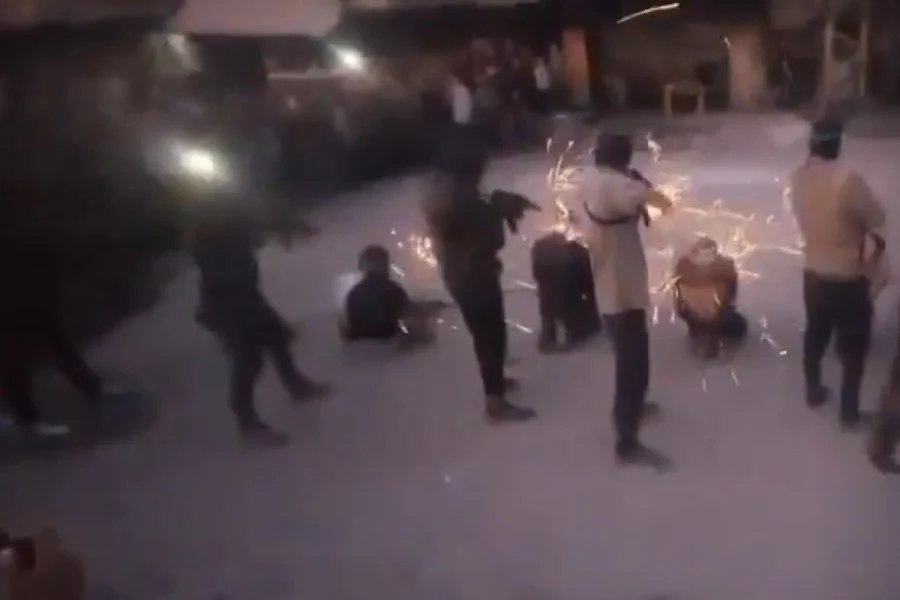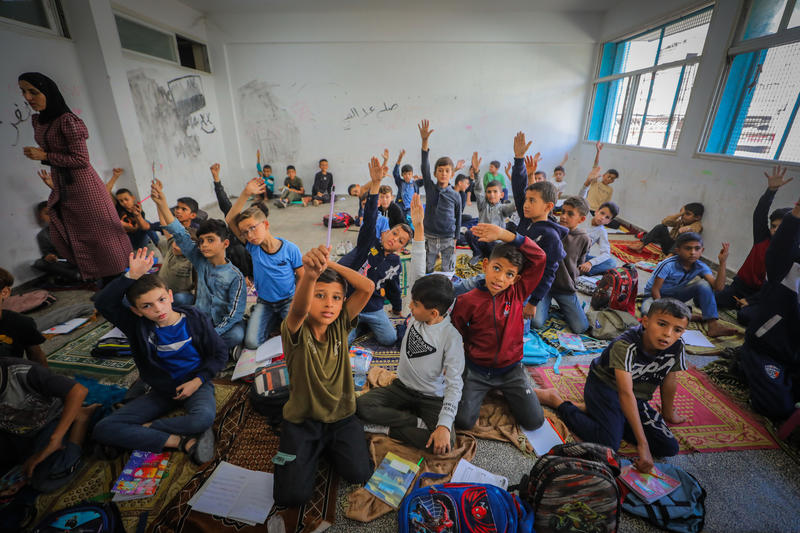The distorted mirror: When public opinion polls demonize

In democratic societies, Western-style public opinion polls are built on the freedom of expression. These methods rest on the assumption that respondents are free individuals who can express their thoughts rationally and without fear. Yet when this model is applied to a society like the Palestinian one—where daily life is shaped by intimidation, economic dependence, and religious-ideological pressure—the result no longer reflects reality but distorts it.
A recent survey by the Palestinian Center for Policy and Survey Research (PCPSR) claimed that a majority of Palestinians still support Hamas’s October 7 attack on Israel. Such a finding has been widely cited as evidence of deep-seated fanaticism within Palestinian society—but this interpretation ignores the conditions under which such responses are formed.
This poll shows that Hamas—a terrorist organization devoted to Israel’s destruction—continues to enjoy a relatively high level of support among Palestinians. Yet when assessing the prospects for the future, much depends on whether this apparent support stems from ideological conviction or from fear and the natural instinct to conform and survive.
To illustrate this dynamic, one might recall the so-called “free elections” in totalitarian dictatorships, like North Korea, Saddam’s Iraq, or the former Soviet bloc, which routinely granted the ruling party more than 99 percent of the vote—not because the population truly believed in them with such enthusiasm, but because fear and enforced loyalty erased the very possibility of free choice. In those elections the regime could easily falsify the results by ignoring dissenting votes, but a person’s choice was supposed to remain secret. Yet many still feared that the authorities could identify how they voted. The appearance of overwhelming consent in such systems was never a reflection of public will, but of collective intimidation.
In public opinion surveys, however, the respondent’s answers are given openly, often in front of others, with all the potential consequences that follow. In such an environment, a poll response becomes less a statement of belief than a signal of obedience.
Even from a methodological standpoint, such polls suffer from severe limitations. In societies governed by fear and coercion, refusal to answer is never random—it follows political and social fault lines. Those unwilling to respond, or compelled to repeat what is deemed acceptable, create a systematic distortion that no statistical weighting can repair. The Palestinian Center for Policy and Survey Research, for example, rarely publishes precise response-rate data, and when it does, the reported participation often falls below 50 percent—well within what would be considered “low reliability” by Western research standards. When fear shapes not only the answers but even the willingness to participate, the very foundation of representativeness collapses.
In Gaza or the West Bank, the respondent is not an autonomous citizen but a subject of a system in which power lies in the hands of Hamas or Fatah. Anyone who deviates from the official narrative risks losing their job, their aid, or even their life.

A response to a questionnaire, therefore, is often not an expression of opinion but a survival reflex. Thus, when a poll reports that a majority of Palestinians regard the October 7 attacks as “the right decision,” it does not necessarily reveal their convictions but rather exposes the mechanisms of fear that govern their society.
Palestinian society is deeply collectivist, clan-based, and religiously defined. A response reflects not the individual’s thought but their belonging to the community. Saying “yes” to the question “Was it the right decision?” is not necessarily a rational assessment of reality but an identity statement—an affirmation of loyalty to the “resistance,” which religious and political leadership has long presented as the only path to honor and survival.
This is particularly dangerous because the outside world tends to interpret the results as a mirror of reality. From such statistics, observers conclude that Palestinian society as a whole is violent, extremist, and uninterested in peace. Thus, data born of a flawed methodology are not only scientifically unreliable but also politically destructive. These figures reinforce demonizing stereotypes that portray Palestinians as a collective of perpetrators rather than as intimidated and powerless human beings.
Ultimately, the only conclusion that can be taken seriously from the latest PCPSR poll is not that Palestinians broadly support violence, but that support for Hamas’s October 7 attack has declined since earlier surveys—especially in Gaza. That downward trend, not the raw figures, offers the only reliable insight into Palestinian public sentiment.
Yet when the distorted findings of such polls are taken at face value, their impact reaches far beyond politics; they touch the human heart. Even the devoted followers of Jesus can find their compassion waning when they come to see an entire people as possessed by the devilish ideology of Islamic jihad. When a believer is convinced that most Palestinians are consumed by hatred, prayer becomes strained, intercession grows distant, and empathy gives way to suspicion.
This spiritual consequence of misrepresentation is perhaps the most tragic of all: the loss of mercy, without which sincere intercession is impossible.
“Therefore be merciful, just as your Father also is merciful.” (Luke 6:36)

Is All Israel News’ faithful reporting important to you? Be part of it—help us continue by becoming a $5/month supporting partner.

Yehuda is a former teacher in Israel's first accredited Messianic school, based in Jerusalem, holding academic degrees in mathematics, physics, and philosophy. He joined the ALL ISRAEL NEWS staff in August 2023.
You might also like to read this:

















